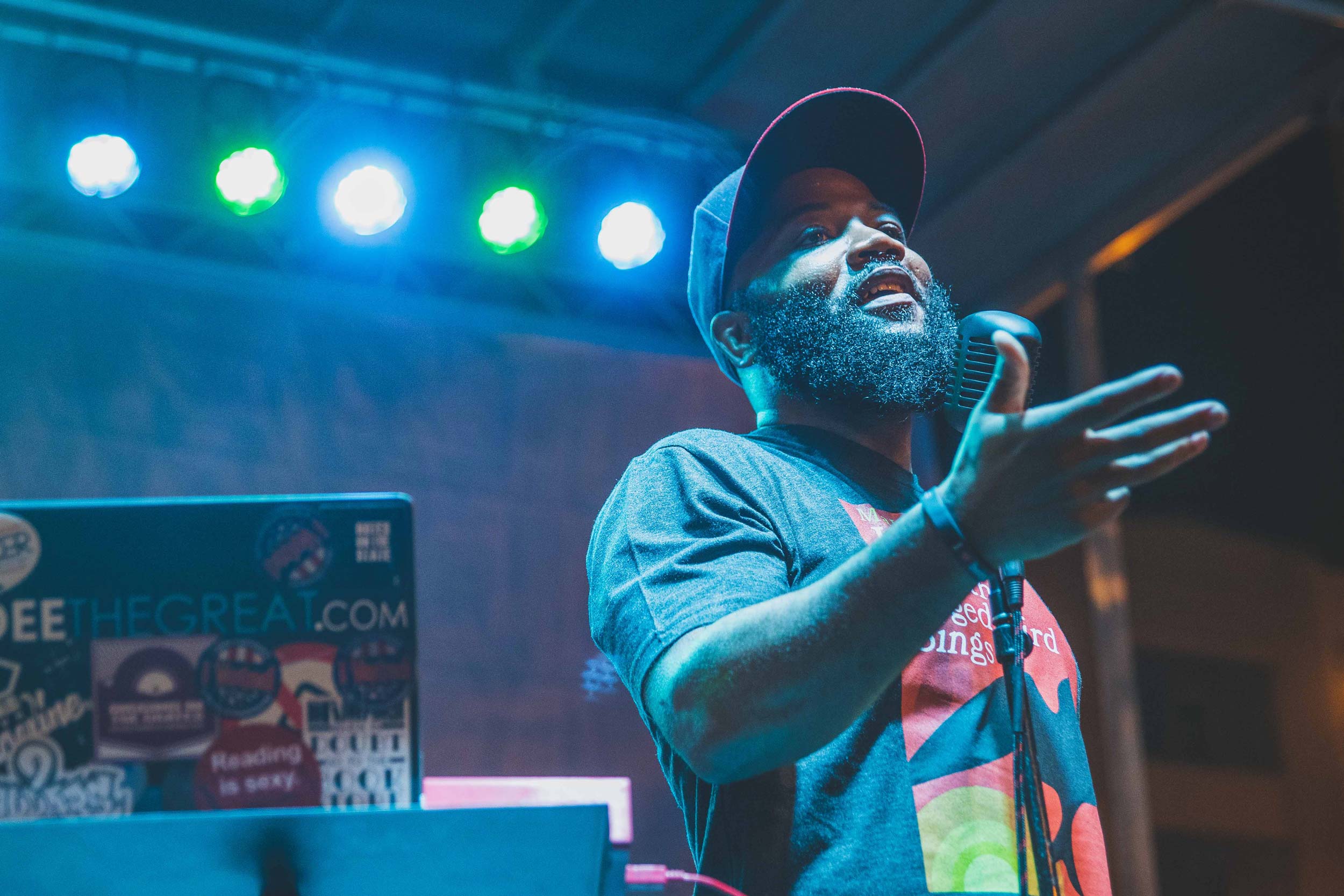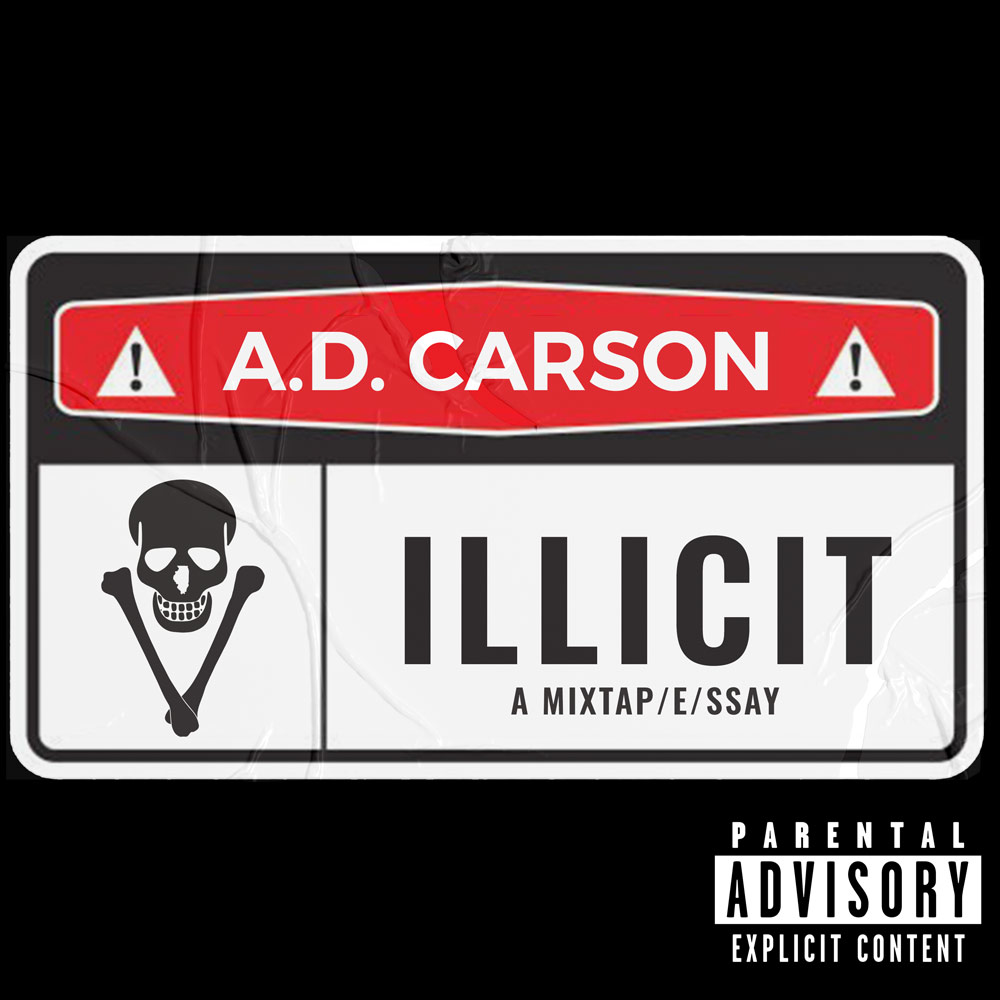Drugs have a prominent place in American life. Sometimes the difference between prescription drugs, over-the-counter drugs and illegal drugs is a matter of where you get the drugs and if getting them there is considered legal. This seems to be about control and regulation, and it also seems to include clear race, class and gender issues. Everything I said here about drugs is applicable to culture, music and people.
Black music and Black people have been subject to attempts at strict control and regulation since before this was a country. Simultaneously, people have consistently tried to extract from and exploit Black music and musicians for profit. So, the metaphor is that Black people are like drugs and the U.S.A. is a user, an addict, a wannabe kingpin.
Making rap music, and that work being judged by UVA and larger scholarly communities to determine whether I should earn tenure, keep my job, or be considered an expert, means that my dopeness is also being determined “good” or “bad,” “sanctioned” or not.
Q. What does having tenure mean for you, and what does it mean for UVA?
A. I’m not as concerned about it being “historic” as I am with the work being good and impactful. That said, I’m not going to be fake humble and pretend that history doesn’t matter. I’m proud to be able to use hip-hop to push boundaries that shouldn’t exist.
I’m proud to have presented my scholarship as rap music. My department, the College of Arts & Sciences and the University see those contributions as worthy of recognition with tenure. This is an example of UVA leading by creating a model that other universities should follow.
Q. Your path to tenure was different than many of your colleagues, in that part of your tenure submissions were rap albums. Why did you choose that path?
A. One of the primary ideas in my work is about what determines who is viewed as an expert about certain subjects. What makes something “academic” or “scholarly”? A researcher who raps his findings is no less a researcher.
In the summer of 2017, I released the first album in the series, “Sleepwalking, Vol. 1.” It contains a recording of me at a counterprotest on the morning of Aug. 12 (2017, when white supremacists descended on Charlottesville). “Sleepwalking 2” came a year later. The third album, “i used to love to dream,” was published in 2020 and was the first album ever peer-reviewed and published with an academic press. The fourth, in 2022, “iv: talking to ghosts,” was written and released during those difficult pandemic times.






